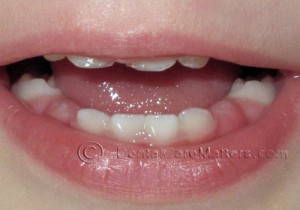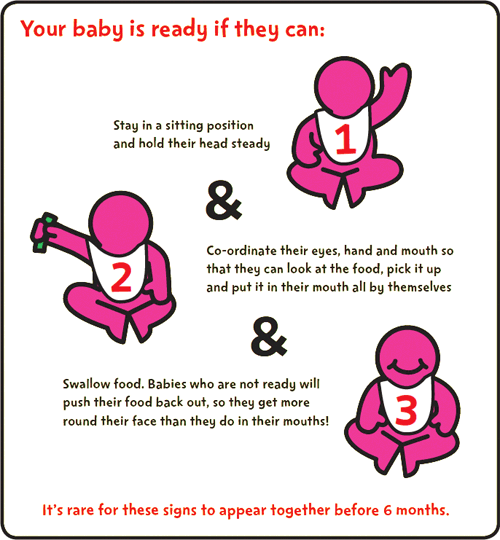Is it time to feed your baby with solid foods?
What should it be? Rice cereal? Iron fortified foods? Or maybe veggies and fruit is a better option?
There is so much conflicting information out there; it can be very confusing.
When you have a health related question, the first thing you’re instructed to do is – ask your doctor. That’s because it’s assumed that your baby’s doctor is well educated on the topic of nutrition and is up to date with the newest nutritional research.
I wish that was the case, but unfortunately doctors know very little when it comes to nutrition. This is especially true when you compare allopathic doctors with nutritionists or naturopathic doctors, which seem to be very well educated on the topic of nutrition.
* A side note – Although in general, currently pedietricians’ food recommendations are outdated and not optimized for health and absorption of minerals and vitamins, I am glad to see more and more pedietricians working closely with registered nutritionists when it comes to advising parents about baby’s first foods.
Baby had his/her 6 months check up and is ready for solid foods
An allopathic pediatrician will usually say that it is time to start feeding baby with iron fortified baby rice cereal.
A naturopathic doctor would most likely say to hold off on the grains until at least after a year, if at all.
Which doctor is right?
We want the very best for our babies, what is the best option?
Does the doctor know that rice has arsenic?
Does your doctor know that rice cereal is the taproot of the childhood obesity?
Does the doctor know that fortified vitamins are synthetic and are not naturally based, and therefore not absorbed in the body?
That the iron they “fortify” with is not the absorbable form?
The doctor who’s recommending rice cereal probably doesn’t know that these breakfast products contain excess levels of the synthetic vitamins that may harm vital organs and immune function in the longer term. The doctor probably also does not know that isolated, synthetic vitamins can disrupt proper absorption of nutrients. Because if the doctor knew all of this, they would (hopefully) avoid recommending rice cereal.
Rice cereal is the worst food for baby
Rice cereals are just starch with fake vitamins that the body doesn’t know what to do with, because they are not real.
Furthermore, rice cereal is an extremely high glycemic food (spikes the blood sugar). Not only that, the pancreatic amylase (the enzyme needed to digest grains) doesn’t get produced until 12-18 months of age; sometimes not until age 2. The poor ability for the immature digestive system to digest grains prior to this time combined with being fed grains at this time often leads to health issues like rashes, constipation (which most of us are familiar with), and eczema. It can also lead to allergies, asthma (have you noticed how prevalent these are these days?) and other autoimmune disorders.
Shouldn’t doctors know all of this?
Yes they should! But currently reality is still very far from the ideal state.
According to the US National Library of Medicine, National Institute of Health, “on average, [medical] students received 23.9 contact hours of nutrition instruction during medical school (range: 2–70 hours). Only 40 schools required the minimum 25 hours recommended by the National Academy of Sciences. Most instructors (88%) expressed the need for additional nutrition instruction at their institutions.”
So if doctors are not getting an adequate nutritional education they are most likely to just follow the “general protocol” which is to recommend iron fortified cereals for baby.
It’s important to note that even Health Canada and the Canadian Pediatric Society are not pushing only cereal as a first food. Health Canada does note meats as a first foods.
Why are The Canadian Pediatric Society and Health Canada so concerned about iron in baby’s food?
Iron has become an issue due to a few factors:
The increasing use of formulas (back in the 50s), the poor absorption of iron in these fortified foods because they are not food based, and the increased practice of immediate cord clamping at birth.
According to the British Medical Journal, waiting for at least three minutes to clamp the umbilical cord following birth improves a baby’s iron levels at four months.
For those whose healthcare providers wait to cut the cord, there are numerous benefits including an infusion of 1-2 months worth of iron (27-47 mg) and a blood volume increase of 25-40% over babies whose cords were cut right away.
Without delayed cord clamping, babies’ natural stores of iron start to decrease around the 6 month mark.
Solid foods can help to meet your baby’s increased need for iron at that time. This is why doctors encourage iron rich foods first – but the iron levels do not drop instantly, and the new iron source doesn’t have to be through grains!
If iron actually is a concern, there are many other real food options that have naturally occurring iron and that also have fibre, and a host of other nutrients.
Iron rich foods for baby:
These are real foods, whole foods with real vitamins and minerals, packaged the way nature intended for us.
Animals based foods rich in iron – Egg yolks, cooked chicken liver, turkey, lamb, grass fed beef, wildly caught fish
Vegetables rich in iron – Spinach, broccoli, Brussels sprouts, green peas, beans.
Beans & Legumes – Chick peas, lentils, dried peas and beans.
If you are breastfeeding, breast milk has some iron, and while it is less than iron-fortified cereal, it is more readily absorbed. Because the iron in cereal is much more difficult to absorb, it’s likely that most will end up in baby’s diaper anyhow.
So, how does a mom know when to introduce grains?
The baby’s gut is often not ready for food at 4 months, as the digestive system is still developing. Babies are born with naturally leaky guts, meaning that there are little gaps in the gut lining. For most babies the gut seals around six months. Registered Holistic Nutritionists and Naturopaths are aware of the above and actually encourage parents to stay clear of rice cereals as a first food. They generally recommend to offer solids based on the physiological needs and abilities of the baby.
When baby’s molars come in is usually the time that they start producing pancreatic amylase, which is used by the digestive system to break down carbohydrates.

How do you know that baby is ready for solid foods?
Babies have outward, visible signs of being ready to eat solids: sitting up on their own, developing the pincer grasp, and losing the tongue reflex that pushes food out of the mouth. (Basically, when they are able to feed themselves.) As long as they are at the developmental age where they can sit up and put things in their mouths they should be ok to start tasting solids. For some babies, this may happen somewhere between 6 to 8 months old or even later. For others, it may happen around 4 months.

Source: http://www.breastfeedinginsheffield.co.uk/mum-and-baby/moving-on/
Either way, it doesn’t even matter how much they even get in their mouths at first. The goal is to help them explore new tastes so that they’ll eventually become adventurous eaters. (And rice cereal is pretty boring). We can offer food but we don’t need to pressure. Mom can relax!
We Want To Hear From You!
When you inspire a mother, you inspire a family. When you inspire a family, you inspire the community. And when you inspire the community, you can change the world.
Health begins with mom!
Which first foods did your pediatrician recommend to your baby? Do you trust your doctor? Why yes and why not? Post your comments below 🙂